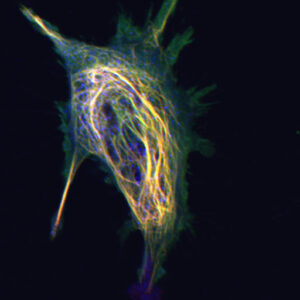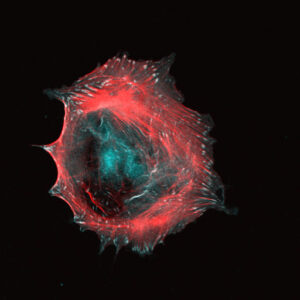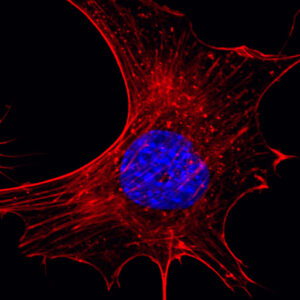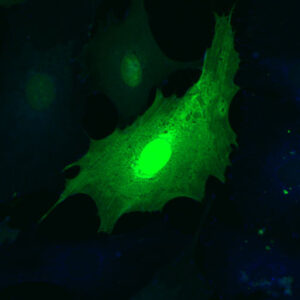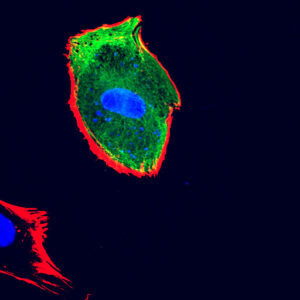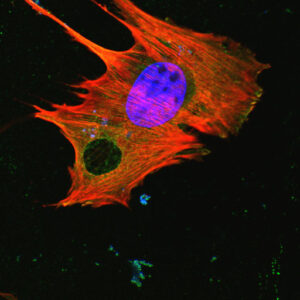Cannabinoids, the active components of Cannabis sativa, have been shown to possess diverse biological activities, including anti-metastatic and pro-apoptotic effects on a wide spectrum of tumor cells and tissues. Moreover, cannabinoids have been shown to inhibit cancer cell migration ability through a mechanism which involves the Ras homolog gene family (RhoA), RhoGTPase, and G-coupled receptors. Our work focuses on how cannabinoids affect these mechanisms.
In brief, G-coupled receptors work with G-proteins to detect molecules outside the cell and activate internal signal transmission, thereby ultimately regulating cellular responses. RhoGTPases are small (~21 kDa) signaling G-proteins that play an essential role in cytoskeletal rearrangement. The temporal and spatial activation of RhoGTPases is intricately controlled by guanine nucleotide exchange factors (GEFs). The RhoGEF GEF-H1 is a RhoA specific GEF and characterized as a critical mediator of the cross talk between the microtubule and actin-based cytoskeletons.
We previously described a detailed mechanistic picture of how GEF-H1 is inactivated on
microtubules (Mol Cell 2012) and the novel multistep activation mechanism of GEF-H1 by the G-couple protein receptor (Nature communications 2014). In parallel to these findings we also uncovered that GEF-H1 plays a critical role in the RAS/mitogen-activated protein (MAP) kinase pathway and provides mechanistic insight into the progression of RAS-mutated cancers (Cancer Cell 2014).


